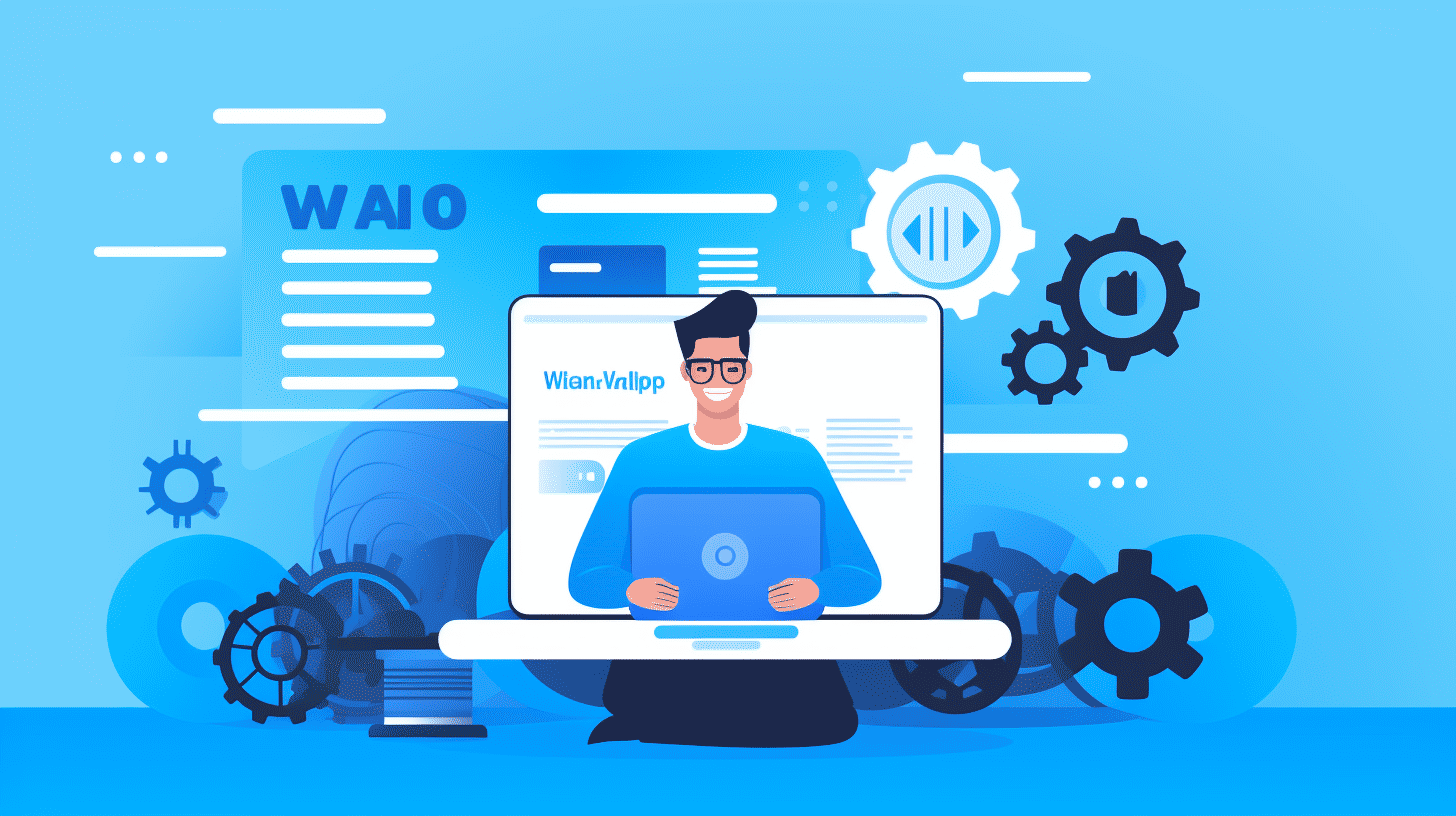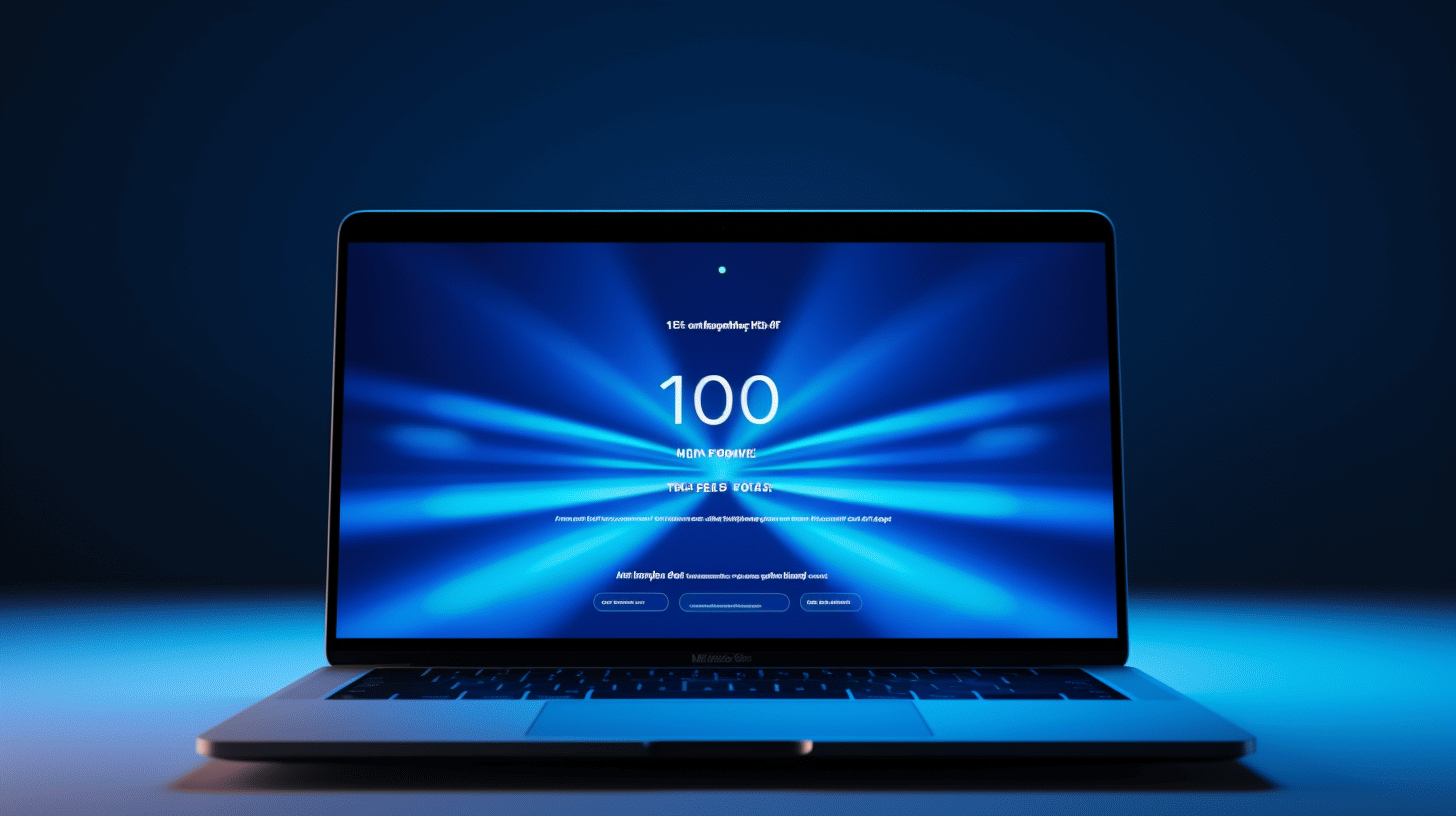In today’s digital age, maintaining a website is critical for businesses and organizations of all sizes. With so much riding on the online presence of a company, it’s essential to keep websites running smoothly, secure from vulnerabilities, and optimized for the best user experience. As an IT manager, you play a crucial role in ensuring that your organization’s website remains up to date, protected, and performing at its best.
When it comes to website maintenance, one popular platform that many IT managers turn to is WordPress. WordPress offers a user-friendly interface, a vast community of support, and an extensive range of plugins and themes. These features make it an excellent choice to streamline website maintenance and keep your online presence running smoothly.
In this article, we will explore the importance of website maintenance for IT managers and delve into the benefits and challenges specific to WordPress. We will also provide you with best practices to streamline your WordPress website maintenance process, enabling you to efficiently manage your organization’s online presence. Let’s dive in! 👨💻🌟
Why Website Maintenance Matters for IT Managers
In today’s digital age, websites play a crucial role in the success of businesses of all sizes. From attracting new customers to providing valuable information about products and services, a well-maintained website is essential for staying competitive in the online marketplace. For IT managers, ensuring that a company’s website is properly maintained is not only important for security but also has a significant impact on site performance and user experience.
Importance for Security
Website security is a top concern for IT managers, as cyber threats continue to evolve and become more sophisticated. Regular website maintenance plays a vital role in safeguarding against potential security breaches, protecting sensitive customer data, and preventing unauthorized access to the site. By regularly updating and patching software, monitoring for vulnerabilities, and implementing robust security measures, IT managers can mitigate the risk of cyber attacks and keep the website secure.
🔒 Extra Info: Regular website maintenance can catch potential security issues early. Taking proactive measures such as updating software, implementing secure coding practices, and regularly scanning for vulnerabilities can help prevent security breaches and safeguard valuable data.
Impact on Site Performance
Optimizing site performance is another crucial aspect of website maintenance for IT managers. Slow-loading pages and poor site performance can lead to higher bounce rates, lower search engine rankings, and dissatisfied visitors. Regular maintenance tasks such as updating plugins, optimizing images, cleaning up unnecessary code, and implementing caching mechanisms can significantly improve site load times and overall performance. By ensuring that the website loads quickly and functions smoothly, IT managers can enhance the user experience and encourage visitors to stay on the site longer.
🚀 Extra Info: Maintenance tasks like updates and optimization can significantly impact site load times and overall performance. Regularly optimizing code, compressing images, and implementing caching strategies can speed up page load times, resulting in a better user experience and improved SEO rankings.
Influence on User Experience
A well-maintained website provides a seamless and enjoyable user experience. It is easy to navigate, visually appealing, and functions flawlessly across different devices and browsers. By regularly updating website content, fixing broken links, ensuring compatibility with various browsers, and optimizing for mobile devices, IT managers can create a positive user experience that keeps visitors engaged and encourages them to return.
🌟 Extra Info: A well-maintained website provides a better user experience. By regularly updating content, fixing broken links, and optimizing for mobile devices, IT managers can create a seamless and user-friendly experience that keeps visitors coming back for more.
In conclusion, website maintenance is a critical responsibility for IT managers. By prioritizing security, optimizing site performance, and enhancing the user experience, IT managers can ensure that their company’s website remains secure, performs well, and engages visitors effectively. In the fast-paced digital landscape, regular maintenance is key to staying ahead and delivering a positive online presence.
Benefits of WordPress for Website Maintenance
Website maintenance is a crucial aspect of running a successful online presence. It involves regular updates, bug fixes, security audits, and keeping the content fresh and up to date. But maintaining a website can be time-consuming and challenging, especially if you’re not familiar with coding or web development. This is where WordPress comes in. With its user-friendly interface and extensive plugin and theme options, WordPress is a powerful tool for website maintenance. Let’s explore some of the top benefits of using WordPress for website maintenance.
Ease of use
One of the main reasons why WordPress is the go-to choice for website maintenance is its ease of use. You don’t need to be a tech guru or have coding skills to manage and update your website. WordPress offers a user-friendly interface that allows you to make changes effortlessly. From creating new pages and blog posts to uploading images and videos, WordPress simplifies the entire website maintenance process.
Some key features that make WordPress easy to navigate and customize include:
- Intuitive dashboard: WordPress provides a clean and straightforward dashboard where you can access all the essential features and settings for your website.
- WYSIWYG editor: With the built-in What You See Is What You Get (WYSIWYG) editor, you can easily create and format content without having to write any code.
- Drag and drop functionality: Many WordPress themes and page builders offer drag and drop functionality, allowing you to design and customize your website layout effortlessly.
Large community support
WordPress has a massive and active community of developers, designers, and users who continuously contribute to its growth and improvement. This strong community support is invaluable when it comes to website maintenance. If you encounter any issues or have questions about managing your website, you can rely on the WordPress community for help and guidance.
Here are some ways the WordPress community supports website maintenance:
- Online forums and communities: There are numerous online forums and communities dedicated to WordPress where you can seek assistance, ask questions, and share your knowledge.
- Official documentation and tutorials: WordPress offers comprehensive documentation and tutorials to help users understand and navigate its features easily.
- Regular updates and bug fixes: The WordPress core team releases regular updates and bug fixes to ensure the platform remains secure and up to date.
Wide range of plugins and themes
One of the standout features of WordPress is its extensive library of plugins and themes. These add-ons allow you to extend the functionality and customize the design of your website effortlessly. Whether you want to enhance the security, optimize your site for search engines, or add advanced features like e-commerce capabilities, WordPress plugins have got you covered.
Here are some benefits of using plugins and themes for website maintenance:
- Enhanced functionality: With plugins, you can add a wide range of features and functionality to your website, such as contact forms, social media integration, performance optimization, and more.
- Customization options: WordPress themes offer a vast selection of designs and layouts, allowing you to create a unique and visually appealing website without the need for extensive customization.
- Regular updates: Plugin and theme developers often release updates to fix bugs, improve security, and add new features, ensuring your website remains secure and up to date.
In conclusion, WordPress offers numerous benefits for website maintenance, making it a popular choice among businesses and individuals alike. Its ease of use, large community support, and wide range of plugins and themes make it a powerful tool for keeping your website running smoothly and effectively. So if you’re looking for an accessible and versatile platform for website maintenance, WordPress is definitely worth considering. 👍🌐
Challenges in WordPress Maintenance
Maintaining a WordPress website can be both rewarding and challenging. As with any digital platform, there are certain obstacles that can make the process more complex. In this section, we will explore some common challenges faced by WordPress website owners and administrators.
Dealing with updates
WordPress regularly releases updates for its core software, themes, and plugins. While these updates bring valuable improvements and new features, they can also pose some challenges. Here are a few things to consider when dealing with updates:
- Compatibility: Sometimes, updates can cause compatibility issues with existing themes and plugins. This can lead to broken functionality or even a complete website crash. It’s crucial to thoroughly test updates on a staging site before applying them to the live website.
- Time and Effort: Updating the WordPress core, themes, and plugins can be time-consuming, especially if you have multiple websites. It requires careful planning, monitoring, and backups to ensure a smooth update process.
Security concerns
WordPress is a popular content management system, which makes it a prime target for hackers. Security breaches can have severe consequences, including data leaks, website defacement, or loss of user trust. Here are some security concerns to be aware of:
- Weak Passwords: Using weak or easily guessable passwords can leave your website vulnerable to brute-force attacks. Ensuring that you have strong and unique passwords for all user accounts is essential.
- Outdated Themes and Plugins: Keeping themes and plugins updated is key to preventing security vulnerabilities. Developers often release updates to patch security flaws, so neglecting updates can leave your website exposed.
- Malicious Code Injections: Hackers can inject malicious code into vulnerable websites, leading to unauthorized access or spreading malware. Regular security scans and monitoring can help detect and mitigate such attacks.
Dealing with incompatible plugins
Plugins are an essential part of WordPress, allowing website owners to extend functionality and customize their sites. However, using incompatible or poorly coded plugins can cause significant challenges:
- Conflicts: Incompatible plugins can conflict with each other or with the WordPress core, resulting in erratic behavior or even site crashes. Testing plugins before installation and regularly reviewing their compatibility is important.
- Performance Impact: Some plugins can slow down your website’s load time or consume excessive server resources. Regularly evaluating and optimizing plugins can help maintain optimal performance.
Scaling and optimization challenges
As your WordPress website grows, you may encounter scalability and optimization challenges:
- Performance: With increasing traffic and content, your website’s performance may be affected. Optimizing images, enabling caching, and using a content delivery network (CDN) are just a few strategies to consider.
- Database Management: Over time, your WordPress database can become bloated with unnecessary data, affecting performance. Regularly cleaning and optimizing the database can help improve site speed and efficiency.
In conclusion, maintaining a WordPress website comes with its fair share of challenges. From dealing with updates and security concerns to managing incompatible plugins and optimizing performance, there is a lot to consider. However, with proper planning, testing, and ongoing maintenance, these challenges can be overcome, ensuring a secure and well-functioning WordPress website for your audience.
Best Practices for Streamlining WordPress Website Maintenance
Maintaining a WordPress website is crucial for keeping it running smoothly and securely. Without proper maintenance, your website may become slow, vulnerable to security threats, or even crash unexpectedly. To avoid these issues, it’s essential to follow best practices for streamlining WordPress website maintenance. Here are some key practices to consider:
Regular updates 💡
Keeping your WordPress core, themes, and plugins updated is vital for the overall health and security of your website. Updates often include bug fixes, new features, and security patches, which help prevent potential vulnerabilities. Make it a habit to regularly check for updates and install them promptly.
Implementing a regular backup routine 💾
As a website owner, it’s critical to have a reliable backup system in place. Regularly backing up your website ensures that you have a recent copy of your data and files, which can be easily restored in case of any unforeseen issues or data loss. Consider using WordPress backup plugins or online services to automate this process and make it hassle-free.
Routine security checks 🔒
Securing your WordPress website is of utmost importance. Regular security checks help identify and address potential vulnerabilities before they can be exploited. Here are some security practices to consider:
- Keep your WordPress login credentials strong and unique.
- Implement two-factor authentication for added security.
- Use a reputable security plugin to scan for malware and other threats.
- Perform regular security audits to identify and address any weak points in your website’s security.
Optimizing database and clearing caches 🗄️
Over time, your WordPress website’s database can accumulate unnecessary data, which can impact its performance. Optimizing your database and clearing caches can help improve your website’s speed and efficiency. Consider using plugins like WP-Optimize or WP Rocket to automatically optimize your database and clear cache files.
Choosing reliable plugins and themes 🔌
Using plugins and themes from reliable sources is crucial for the stability and security of your WordPress website. Here are some tips for choosing reliable plugins and themes:
- Stick to plugins and themes available in the official WordPress repository.
- Check the plugin or theme’s rating, reviews, and update frequency.
- Look for developer support and active community involvement.
- Avoid installing unnecessary plugins or themes that may slow down your website.
By following these best practices, you can ensure that your WordPress website remains secure, efficient, and running smoothly for both you and your visitors. Remember, regular maintenance is key to a successful online presence.
Conclusion
In conclusion, managing website maintenance is crucial for IT managers to ensure the security, performance, and user experience of their WordPress websites. By implementing best practices such as regular updates, backup routines, security checks, and optimization techniques, IT managers can streamline the maintenance process and keep their websites running smoothly.
While maintaining a WordPress website can come with its challenges, the benefits of using WordPress outweigh the drawbacks. Its ease of use, large community support, and vast range of plugins and themes make it an ideal choice for website maintenance.
For IT managers looking for a reliable and efficient solution for their WordPress website maintenance needs, Managed-WP is here to help. With our premium managed WordPress cloud hosting platform, we simplify infrastructure, offer freedom in digital experiences, and provide expert 24/7/365 problem-solving. Let us handle the technical aspects so that you can focus on growing your business.
Learn more about Managed-WP and discover how we can make your WordPress website maintenance a breeze. Feel free to reach out to our team to discuss your specific needs and find the perfect solution for your website.
Frequently Asked Questions
- Why is website maintenance important for IT managers?
Website maintenance is important for IT managers as it ensures the security, performance, and functionality of the website. Regular updates and fixes help protect against security vulnerabilities and provide a smooth user experience.
- What are some essential website maintenance tasks for IT managers?
Some essential website maintenance tasks for IT managers include performing regular backups, updating plugins and themes, monitoring website speed and performance, checking for broken links, and ensuring website security.
- How often should I perform website backups?
It is recommended to perform website backups at least once a week, or more frequently if your website frequently changes or generates new content. This ensures that you have a recent backup in case of any data loss or website issues.
- Can I automate website maintenance tasks?
Yes, you can automate website maintenance tasks using various tools and plugins available for WordPress. These tools can schedule backups, perform updates, and run security scans automatically, saving you time and effort.
- What are some popular WordPress plugins for website maintenance?
Some popular WordPress plugins for website maintenance are UpdraftPlus, WP Rocket, Sucuri, Broken Link Checker, and Wordfence. These plugins assist in backup, caching, security, monitoring, and optimization tasks.



















